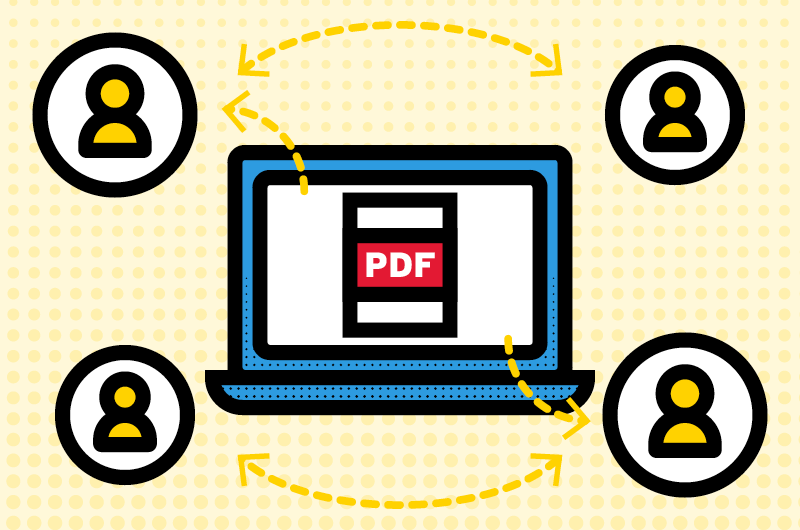DRUM - Digital Repository at the University of Maryland
DRUM collects, preserves, and provides public access to the scholarly output of the university. Faculty and researchers can upload research products for rapid dissemination, global visibility and impact, and long-term preservation.

Submit to DRUM
To submit an item to DRUM, login using your UMD credentials. Then select the "Submit Item to DRUM" link in the navigation bar. View DRUM policies and submission guidelines.

Equitable Access Policy
The University of Maryland Equitable Access Policy provides equitable, open access to the University's research and scholarship. Faculty can learn more about what is covered by the policy and how to deposit on the policy website.

Theses and Dissertations
DRUM includes all UMD theses and dissertations from 2003 forward.
List of Communities
Collections Organized by Department
UM Community-managed Collections
Recent Submissions
Item type: Item , An Individual Approach: A Case Study on Oral History Accessioning(KGL Meridian, 2025-08-01) Gathings, Jennifer; Mayfield, Catherine DayritThis article explores the convergence of traditional accessioning practices in the archives and best practices for describing and growing access to oral history. Archives traditionally focus on collective description of records, describing materials as aggregates at the collection, series, or folder levels versus item-level description. Describing materials based on their fonds or provenance preserves contextual information about their creation, and approaching description in an aggregate way further helps archivists provide more efficient access to both small and large bodies of records. However, when applied to oral history collections, the collective description approach underserves the essential and individual characteristics of oral history materials. If oral history focuses on individual experience and each oral history is governed by its own release or rights agreement, what are the implications for archival accessioning? How might archives adapt broader archival practice to focus accessioning on the individual level when it comes to oral histories? Offering a case study of oral history accessioning procedures in Special Collections and University Archives at the University of Maryland, this article looks to fill gaps in archival practice and to offer a methodology for the accessioning of oral history in a way that is both ethical and seeks to enhance access and discoverability.Item type: Item , HERITAGE TOURISM AND CULTURAL INTERSECTION AT THE OLD ST. NICHOLAS CHURCH AND CEMETERY IN EKLUTNA: TRIBE AND TOURIST PERSPECTIVES(2025) Schnurr, Peter Franz; Palus, Matthew M; Anthropology; Digital Repository at the University of Maryland; University of Maryland (College Park, Md.)This project involved interviewing Eklutna Tribal members, a religious leader from the Orthodox Church in America (Dioceses of Alaska), a tour operator, and tourists about their experiences with tourism at the Tribe’s historic chapel and cemetery in Eklutna, Alaska. The overall goal of these interviews was to investigate and document these experiences to acknowledge their importance and provide a basis for improving the intersection of cultures and priorities at the site. Background on the general history of the chapel and cemetery, as well as the history of tourism at the site, is provided in the context of the Tribe’s history since adopting elements of Russian Orthodox Christianity in the mid-1800s. This is followed by a brief review of the relevant tourism theory that guided the research. The thesis then presents the methods used in gathering data and conducting a thematic analysis of the interviews and summarizes the results of the investigation. After discussion of the results in the context of the historic background and theoretical considerations, the thesis concludes that tourism is not a wholly negative phenomenon in the lives of the Eklutna community members, although their cultural connection to- and continued use of the site needs better representation. It is also apparent from this analysis that tourists’ interest in the site is generally sincere, if slightly uninformed due to a lack of comprehensive and easily accessible information about the site. Based on the most common suggestion for improvement made by participants in the interviews and conversations it draws on for data, the thesis provides recommendations for better signage and scheduling of tourist visits at the Old St. Nicholas Church and cemetery.Item type: Item , THOSE WHO KNOW, DO; THOSE WHO UNDERSTAND, TEACH: A COMPREHENSIVE STUDY AND PRACTICUM ON THE STRUCTURE, THERMAL STABILITY, AND DYNAMICS OF RNA MOLECULES(2025) Stump, Frances; Dayie, Theodore Kwaku; Biochemistry; Digital Repository at the University of Maryland; University of Maryland (College Park, Md.)DNA and RNA are the genetic materials of all living organisms. Due to exogenous and endogenous factors, they are constantly damaged. Because of this, we have repair mechanisms to fix such damage. One such instance is DNA base excision repair (BER), whereby the damaged nucleotide base is excised, leaving an intermediate apurinic/apyrimidinic site, also known as an abasic site. While abasic sites also exist on RNA, research has primarily focused on abasic sites in DNA. RNA abasic sites were previously thought to be rare, but they are now known to exist more frequently than previously believed. Additionally, it was discovered that apurinic/apyrimidinic endonuclease 1 (APE1) can cleave abasic sites in both DNA and RNA. However, the rates of cleavage vary greatly, with the abasic RNA cleavage rate being much slower. Probing the thermodynamics and structure of abasic RNA will further our understanding of the molecular basis for these observed differences. Knowledge of the structure of abasic RNA will lay the foundation for understanding the role of abasic RNA in cellular processes.In addition to studying the structure and dynamics of RNA abasic sites, we have also investigated the dynamics of the HIV-2 TAR RNA element, as there is a gap in knowledge about HIV-2 compared to HIV-1. A more comprehensive dynamics profile of the HIV-2 TAR RNA element will aid further studies on potential drug development for HIV-2. Finally, using the HIV-2 TAR RNA element, we have developed a practicum to teach students about NMR spectroscopy of RNA, as well as the importance of RNA research. In the practicum, students will learn NMR theory, complete structural NMR data analysis to determine partial RNA residue assignments and analyze NMR dynamics data to assess the longitudinal relaxation rate constant (R1). The goal is to expose undergraduate students to graduate-level concepts, which will challenge them, build their technical skills, and provide a better understanding of the capabilities of NMR spectroscopy.Item type: Item , Natural Capital: Making a catastrophe free climate change documentary(2026) Cartwright, Kevin; Vasudevan, Krishnan; Journalism; Digital Repository at the University of Maryland; University of Maryland (College Park, Md.)By the time the ball drops, 2025 will be the second or third hottest year on record (World Meteorological Association, 2025). The Washington DC region, made up by the Potomac and Anacostia River watersheds has been canonized in American history as beautiful and a worthy home for the grandeur of the federal government. However, the impacts of climate change in confluence with pollution and urban development that has encroached on DC's watershed have taken a toll on the waterways, wildlife and parks (Dryden, 2024). Stories about environmental devastation are often conveyed to audiences through dramatic narratives that present existential stakes to audiences. However, these films fail to catalyze the type of quotidian, routine civic action that is required to address environmental issues. Guided by naturalist books and a critical examination of existing climate and environmental film, Natural Capital examines the local, unglamorous efforts to restore, beautify and represent the natural environment of the nation's capital. It also attempts to motivate a greater climate consciousness in the viewer not through science fictional renderings of devastation or setting apocalyptic stakes, but by endearing and charming the viewer to the people cleaning up our messes. Film is often described as an “empathy machine” but can we garner empathy for nature in our own backyard through the people working on making it better? I noticed that change in myself throughout research and filming for the project and if I have succeeded, that change can be felt by the viewer.Item type: Item , (ECOLOGICAL PERFORMANCE) + (HUMAN MEANING) = NEW WAYS OF LIVING(2025) Robinson, Jalon Lee; Tilghman, James; Architecture; Digital Repository at the University of Maryland; University of Maryland (College Park, Md.)In dense urban cities, the fusion of regenerative design (defined by the Living Building Challenge) with an anthropological approach rooted in tradition, identity, and cultural narrative creates environmentally sustainable buildings and spaces of profound social and spiritual healing. This synthesis delivers a deeper, more lasting impact, redefining sustainability as a holistic human and ecological endeavor. With its dense urban fabric and existing green spaces, Shibuya presents an ideal testbed for this approach. While efforts towards greening and shinrin-yoku (forest bathing) exist, the architecture often lacks full integration of ecological performance with Japan’s cultural and spiritual traditions. Using precedent analysis, case studies, and programmatic research helps articulate a new building typology that merges regenerative and cultural anthropological principles promoting restorative coexistence, balancing biodiversity, climate resilience, and meaningful human-nature relationships. The study aims to demonstrate how architecture can evolve into a catalyst for ecological and cultural regeneration in dense urban contexts by reducing the urban heat island effect and enhancing social well-being. The goal is to propose a framework redefining sustainability as a holistic human and ecological enterprise, offering practical strategies to inspire transformative urban architecture in Tokyo and dense cities globally
